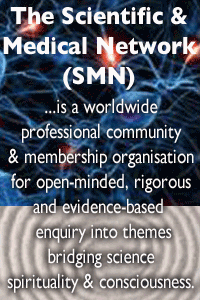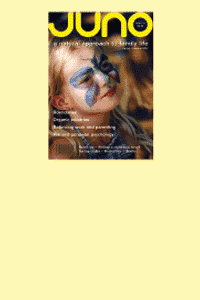Positive Health Online
Your Country

Articles: bodywork
Below are the articles associated with this topic. Click on a title to read one.
-
by David Lauterstein
A philosopher/poet much admired by Ida Rolf, the great innovator in modern bodymind therapy, was Gaston Bachelard. One day I was reading his “Poetics of Reverie” and was struck, l...
-
The Potential For Increased Lung Capacity
by Tanya Milne
Most of the adult population (in this country), probably only use about a third of their lungs available capacity when inhaling. This situation can happen very quickly when caused ...
-
The Primordial Psoas and the Chakra System
by Liz Koch
“Deep within our physical body emerges a bio-intelligent tissue called the Psoas. This mysterious tissue is defined within the biomechanical paradigm as a core stabilizing muscle...
-
by Liz Koch
At the very core of your physical body lies a muscle that influences every aspect of well-being. The psoas muscle, critical for balance, alignment, joint rotation and range of moti...
-
by Mario-Paul Cassar
Soft tissue work was incorporated in physical therapy many years ago. Its efficacy has been demonstrated by the extent of its utilisation and by its continuous evolvement, sometime...
-
by Joel Carbonnel
The work of Mézières is firmly based on what she called 'muscular chains' (MCs). I don't know if she was the first one to use this term but she gave a clear and precise definition ...
-
by Emma Gilmore
Having been working with touch modalities for 25 years I witness constantly the power of positive, nurturing touch. At the end of just a single session, a client seems not just rela...
-
Touch Therapy Training Programme For Children with Disabilities
by Katie Essex
The author shares her experiences of her involvement as both therapist/instructor and research assistant in the Touch Therapy Training Programme (TTTP) developed by Julie Barlow an...
-
by Graeme Stroud
Transformational Bodywork is a method of working on the physical body that begins the process of contacting, accepting and transmuting the pain, trauma and congested energy that re...
-
Trauma – When Emotion and Energy Get Stuck in the Body
by Emma Gilmore
Continuing the theme from our previous article on emotion in the body, in this article we’re going to look at the ways in which emotion gets stuck in our bodies, changing our physio...
-
by William Redpath
The author, William Redpath, a psychoanalyst, Reichian therapist, special education teacher and certified advanced Rolfer, has spent many years studying tragic theory and trauma th...
-
Trauma Release Body-Mind Processing
by Louis A Gross BSEE
In this article Gross describes his system of Trauma Release Body-Mind Processing, which combines Ida Rolf's Structural Integration Method of Connective Tissue Manipulation, psychi...
-
Treating Chronic Pain Deep Tissue vs. Muscle Release Technique
by Michael Young
By using the Muscle Release Technique,™ we not only break up scar tissue, we lengthen the muscle. This results in more flexibility, no more nerve impingement and no more pain. By u...
-
Treating Pain in Joints and Muscles
by Vicki McKenna
As an acupuncturist I commonly see people with pain in their joints and muscles. Often pain in joints is labelled "arthritis" and muscular pain may be classified as "fibromyalgia" ...
-
by Simeon Niel-Asher
This article focuses on shoulder problems, such as frozen shoulder, rotator cuff tendinopathy, capsulitis, arthritis of the glenohumeral joint, impingement syndrome, post operative...
-
Treating Trigger Points Reduces Pain from Knee Osteoarthritis
by Valerie DeLaune
Trigger points are hyper-irritable spots in skeletal muscles, and when pressed, feel like tender 'knots' or tight bands in the muscles. Around 75% of pain is caused by trigger poin...
-
by Steven Hefferon
The author explains what triggers a trigger point (a type of muscle stiffness), why they cause trouble, how to recognize if you have trigger points and how long it takes before y...
-
True Healthcare - Helping the Body to Heal Itself
by Brian A Rothbart PhD
“Eventually medicine and humanity must come to terms with the fact that healing comes from within, and the true role of a practitioner is to facilitate that healing within.” Dr. Gas...
-
by Leon Chaitow, ND DO
In 1988 I coauthored (with investigative journalist Simon Martin) a book with the title World Without AIDS (Thorsons) and in 1994 my other book on this topic You Don’t Have to Die ...
-
by Joel Carbonnel
Nature, as a rule, does not like straight lines but rather favours curves, and has a marked preference for that most beautiful of curves – the spiral.




